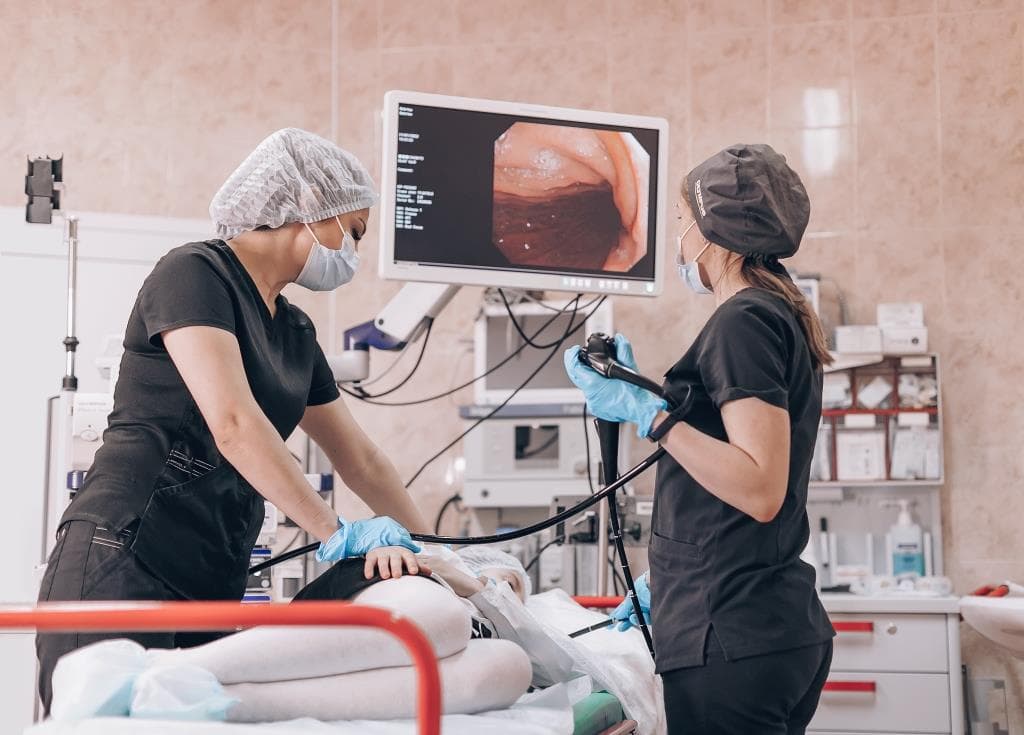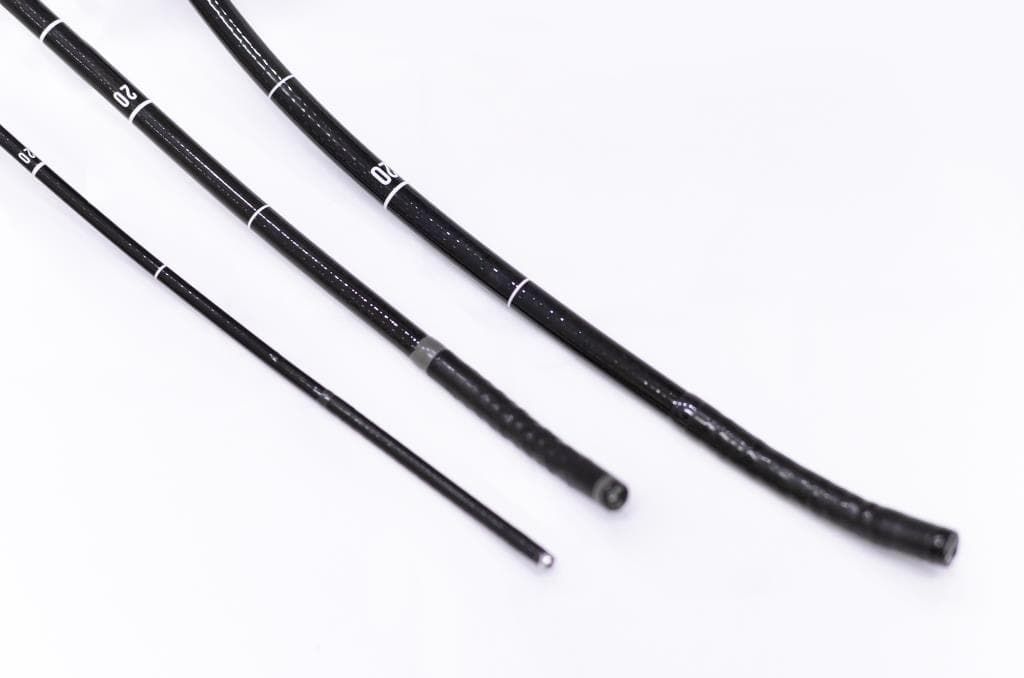A child is not a small copy of an adult. Children have a number of neuropsychiatric characteristics: emotional instability; slight excitability; and an extremely adverse reaction to medical manipulations. This makes the profession of any paediatrician much more difficult. Paediatrics is considered one of the most challenging medical specialities.

The structure of a child’s gastrointestinal tract (GIT) also has age characteristics, and what is a pathology for an adult can be an age norm for a child. Endoscopic examination of a child (paediatric gastroscopy, colonoscopy) requires a thorough, thoughtful examination. We usually conduct paediatric endoscopic examinations under intravenous anaesthesia in order to make small patients feel calm and comfortable, and enable a doctor to conduct qualitative research on the gastrointestinal mucosa.
Important!
The Clinic conducts examinations for children who are at least four years old.
When contacting the Clinic to book an appointment for examination at the reception or by phone, a parent (a legal representative of a child) must have a referral for an endoscopic examination (a referral can be issued by any doctor, including paediatric gastroenterologist, paediatrician, surgeon, haematologist, gynaecologist, and paediatric oncologist).
The referral must include:
- the purpose of the examination;
- additional indications for biopsy (where and how much tissue should be taken for a histological examination);
- to consult an anaesthesiologist, it is necessary to have an essential examination: a blood test and chest photofluorography.
To conduct an endoscopic examination under anaesthesia, the following algorithm is used:
1. Tests (valid for two weeks):
- clinical blood test;
- coagulation test;
- AST, ALT, urea, creatinine.
2. Electrocardiogram (valid for ten days)
3. It is necessary to consult a paediatrician at the place of residence with the list of tests. The paediatrician should describe the somatic status of the child in the medical record.
4. The consultation of an anaesthesiologist is held no later than one day before the anaesthesia at the Pirogov Clinic of High Medical Technologies.

How is the examination carried out?
- 1. Before the examination, a child is examined by an anaesthesiologist and their parents are interviewed. Medical history taking with an emphasis on the respiratory system is necessary in order to completely eliminate the risks before intravenous sedation and calm the child with a preliminary and pleasant (safe, ‘no injections’) meeting with the doctor.
- 2. On the day of the examination, a child arrives at the Clinic with an accompanying parent (a legal representative), prepares for the examination (changes into special disposable clothes) in the waiting room and a nurse accompanies him/her to the endoscopy suite for an examination. An informational interview is held with the parent, and the necessary documents are signed.
- 3. During the examination, the endoscopist collects the biopsy from the child for morphological examination, which is considered the gold standard of advanced endoscopy.
- 4. After the examination, the child is returned to the waiting room, where he/she calmly wakes up next to his/her relatives and spends some time under the supervision of clinical staff.
- 5. The endoscopist describes the results of the examination and issues a protocol to the accompanying parent (a legal representative). The results of the morphological examination will be ready in 3 to 5 working days. The results of the morphological examination can be received by e-mail when leaving a pre-signed consent to send them and the e-mail address, or in person in the endoscopy suite where the examination was conducted.

Endoscopic examinations for children are necessary for diagnostic or therapeutic purposes:
- anaemia, unspecified;
- gastrointestinal bleeding;
- when swallowing caustic alkalis and acids, foreign bodies;
- dyspepsia: belch, heartburn, abdominal pain, nausea and vomiting, loss of appetite, flatulence;
- unintentional weight loss;
- abnormal bowel habits;
- suspicion of chronic inflammatory bowel disease (IBD);
- polyposis;
- oesophageal or intestinal strictures.
There are relative contraindications:
-
acute infectious diseases;
-
mental illness;
-
heart valve disease and heart failure;
-
haemophilia and other clotting disorders;
-
peritonitis.
Important!
The paediatric endoscopy department is equipped with modern electronic endoscopes of various diameters (gastroscopes 4.9 mm and 9.4 mm, colonoscopy 13.2 mm each) produced by the Japanese company ‘Olympus’. This means that we conduct highly advanced paediatric endoscopic examinations.

Advantages of endoscopic examination in the Clinic:
-
The equipment allows for high examination accuracy due to a three-hundred-fold increase of tissues when examining mucous membranes in polarised light.
-
The altering rigidity of the equipment during the examination makes it possible to see the damage to the mucous membranes of the gastrointestinal tract in detail and detect pathology at an early stage.
-
The equipment makes it possible to collect tissue for a histological examination.
-
The equipment allows for performing ‘mini-operations’ to remove cancerous tissues.
Important!
The Pirogov Clinic of High Medical Technologies at St Petersburg University has passed the ISO 9001:2015 quality management system certification for all services provided. After earning the ISO certification, the Clinic has been annually audited by independent auditors to ensure it meets the requirements of the ISO 9001 standard. In many countries, a voluntary ISO certification is regarded as a mark of quality and credibility for a company, a guarantee of reliability for customers and of nationwide and worldwide professional reputation.
